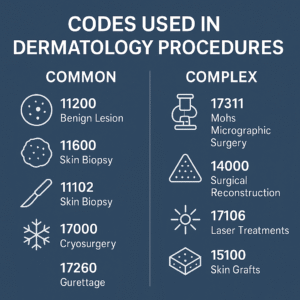How to Switch Medical Coding Companies Seamlessly: A Complete Professional Guide
Medical Coding
Medical Coding
The medical coding industry is dynamic and ever-evolving, offering professionals numerous opportunities for career advancement, better compensation, and improved working conditions. Whether you’re seeking remote work flexibility, specialized coding opportunities, or simply a change of environment, switching medical coding companies can be a strategic career move. However, making this transition smoothly requires careful planning, professional courtesy, and strategic execution.

This comprehensive guide will walk you through every step of the process, ensuring your transition is seamless, professional, and beneficial for your long-term career goals.
Understanding When It’s Time to Make a Switch
Before diving into the logistics of switching companies, it’s crucial to evaluate whether a change is truly necessary. Medical coding professionals should consider several factors when contemplating a career move.
Professional Growth Limitations: If your current position offers limited opportunities for advancement, specialization, or skill development, it may be time to explore new horizons. The medical coding field is constantly evolving with new technologies, coding systems, and specializations. A company that doesn’t invest in employee development or offer pathways to advanced certifications like CCS, CPC, or specialty credentials may be holding back your professional growth.
Compensation and Benefits Concerns: The medical coding industry is competitive, and salaries can vary significantly between companies. If you’ve researched market rates and found that your compensation is below industry standards, or if your benefits package doesn’t meet your needs, a switch might be warranted. This is particularly relevant for experienced coders who have gained additional certifications or specialized skills.
Work-Life Balance Issues: Many medical coding professionals value flexibility, especially the option to work remotely. If your current employer doesn’t offer the work-life balance you need, whether due to inflexible schedules, excessive overtime requirements, or lack of remote work options, exploring companies with better policies makes sense.
Cultural Misalignment: Company culture plays a significant role in job satisfaction. If you find yourself consistently at odds with management styles, company values, or workplace dynamics, it’s worth considering organizations that better align with your professional values and working style.
Researching Potential New Employers
Once you’ve decided to make a change, thorough research is essential for finding the right fit. The medical coding industry includes various types of employers, from healthcare systems and hospitals to outsourcing companies and consulting firms.
Industry Reputation and Stability: Research potential employers’ standing in the healthcare industry. Look for companies with solid financial foundations, positive client relationships, and good reputations among healthcare providers. Check professional associations, industry publications, and news sources for information about the companies on your list.
Specialization Opportunities: Different companies focus on various medical specialties or types of coding. Some may specialize in hospital inpatient coding, while others focus on physician practices, ambulatory surgery centers, or specific medical specialties like cardiology or orthopedics. Align your interests and expertise with companies that offer relevant opportunities.
Technology and Tools: Modern medical coding relies heavily on technology. Research what coding software, electronic health record systems, and productivity tools potential employers use. Companies that invest in current technology and provide proper training often offer better working conditions and career development opportunities.
Employee Reviews and Feedback: Utilize professional networks, online review platforms, and industry forums to gather insights from current and former employees. Pay attention to comments about management, work-life balance, career development opportunities, and overall job satisfaction.

Preparing for Your Job Search
A successful transition begins with thorough preparation. Your professional materials should reflect your current skills, certifications, and experience while positioning you as an ideal candidate for your target roles.
Update Your Resume and Credentials: Ensure your resume accurately reflects your current coding experience, including specific types of coding performed, software proficiency, and productivity metrics. Highlight any specialized training, continuing education, or additional certifications you’ve obtained. Medical coding employers often look for specific qualifications, so make these prominent.
Professional Networking: The medical coding community is relatively tight-knit, and networking can be invaluable during a job search. Engage with professional associations like AHIMA (American Health Information Management Association) or AAPC (American Academy of Professional Coders). Attend virtual meetings, webinars, and conferences to expand your professional network and learn about opportunities.
Skill Assessment and Enhancement: Before making a move, honestly assess your current skills and identify areas for improvement. Consider pursuing additional certifications or specializations that could make you more attractive to potential employers. Online courses, webinars, and certification programs can help you stay current with industry changes and expand your expertise.
Portfolio Development: Create a professional portfolio that demonstrates your coding accuracy, productivity, and knowledge. While you cannot share actual patient information due to HIPAA regulations, you can include sanitized examples of your work, productivity reports, accuracy scores, and continuing education certificates.
Managing the Interview Process
The interview process for medical coding positions often involves multiple stages, including technical assessments, behavioral interviews, and sometimes practical coding tests.
Technical Preparation: Be ready to discuss your experience with various coding systems (ICD-10-CM, ICD-10-PCS, CPT, HCPCS), medical terminology, anatomy and physiology, and specific software platforms. Many employers will ask about your productivity rates, accuracy scores, and experience with different medical specialties.
Coding Assessments: Many companies require practical coding tests as part of their hiring process. These may involve coding sample medical records or scenarios. Practice with various types of cases and ensure you’re comfortable with both inpatient and outpatient coding, depending on the position.
Behavioral Interviews: Prepare to discuss your work style, problem-solving abilities, and how you handle challenging situations. Medical coding can be detail-oriented and sometimes stressful, so employers want to ensure you can work independently and maintain accuracy under pressure.
Questions to Ask: Prepare thoughtful questions about the company’s coding practices, quality assurance processes, continuing education support, career advancement opportunities, and work-life balance policies. This demonstrates your genuine interest and helps you evaluate whether the company is a good fit.

Negotiating Your Transition
Once you receive a job offer, careful negotiation and planning ensure a smooth transition that benefits both you and your employers.
Compensation Negotiation: Research industry salary standards for your experience level and geographic area. Consider the total compensation package, including benefits, paid time off, continuing education allowances, and professional development opportunities. Don’t focus solely on base salary; comprehensive benefits can significantly impact your overall compensation value.
Start Date Planning: When negotiating your start date, consider both your current employer’s needs and your own preparation requirements. Most professional positions require at least two weeks’ notice, but senior positions or those requiring significant knowledge transfer may need more time.
Remote Work Arrangements: If remote work is important to you, clarify the company’s policies during negotiations. Understand expectations for home office setup, technology requirements, communication protocols, and any requirements for periodic in-office presence.
Professional Development Support: Discuss opportunities for continuing education, conference attendance, certification maintenance, and career advancement. Companies that invest in employee development often provide better long-term career prospects.
Executing a Professional Departure
How you leave your current position significantly impacts your professional reputation and potential future opportunities.
Providing Adequate Notice: Standard professional courtesy requires at least two weeks’ notice, but consider your specific situation. If you’re in a senior position or have specialized knowledge that requires transfer, offering additional time demonstrates professionalism and maintains positive relationships.
Knowledge Transfer and Documentation: Create comprehensive documentation of your current projects, procedures, and any specialized knowledge that might benefit your replacement or colleagues. This includes information about specific clients, challenging cases, or process improvements you’ve implemented.
Training Your Replacement: If possible, offer to help train your replacement or assist with the transition of your responsibilities. This professional courtesy is often remembered and appreciated by management and colleagues.
Maintaining Professional Relationships: The medical coding industry is relatively small, and maintaining positive relationships with former colleagues and supervisors is crucial for your long-term career success. You never know when these connections might be valuable for future opportunities or references.

Starting Strong at Your New Company
Your first few months at a new medical coding company set the tone for your long-term success and satisfaction.
Onboarding Excellence: Take full advantage of your new employer’s onboarding process. Ask questions, take detailed notes, and demonstrate enthusiasm for learning their specific procedures and systems. Every company has unique processes, even if the basic coding principles remain the same.
Building Relationships: Invest time in building relationships with your new colleagues, supervisors, and other team members. Strong professional relationships contribute significantly to job satisfaction and career advancement opportunities.
Performance Excellence: Focus on accuracy over speed initially, as building a reputation for quality work is crucial in medical coding. As you become more familiar with the company’s systems and procedures, your productivity will naturally increase.
Continuous Learning: Stay committed to professional development and continuing education. The medical coding field changes regularly, and companies value employees who stay current with industry developments and maintain their certifications.
Long-Term Success Strategies
Successfully switching medical coding companies is just the beginning. Long-term career success requires ongoing attention to professional development and relationship building.
Goal Setting: Establish clear short-term and long-term career goals with your new employer. This might include pursuing additional certifications, specializing in specific areas of coding, or advancing to supervisory or auditing roles.
Performance Tracking: Keep detailed records of your productivity, accuracy scores, and any recognition or achievements. This information is valuable for performance reviews, career advancement discussions, and future job searches.
Industry Engagement: Continue participating in professional associations, attending industry conferences, and staying current with coding updates and healthcare industry changes. Active engagement in the professional community enhances your value and opens doors to future opportunities.
Mentorship and Leadership: As you gain experience, consider mentoring newer coders or taking on leadership responsibilities. These activities demonstrate your commitment to the profession and help develop skills that are valuable for career advancement.

Conclusion
Switching medical coding companies can be a strategic career move that leads to better compensation, improved work-life balance, enhanced professional development opportunities, and greater job satisfaction. However, success requires careful planning, professional execution, and a commitment to excellence throughout the transition process.
The key to a seamless switch lies in thorough preparation, maintaining professional relationships, and approaching both your departure and new beginning with integrity and enthusiasm. By following the strategies outlined in this guide, you can navigate your career transition successfully while building a foundation for long-term professional success in the dynamic field of medical coding.
Remember that career transitions are opportunities for growth and renewal. Embrace the change, learn from the experience, and continue building the skills and relationships that will serve you throughout your medical coding career. With proper planning and professional execution, switching companies can be a positive step toward achieving your career goals and finding greater satisfaction in your professional life.



